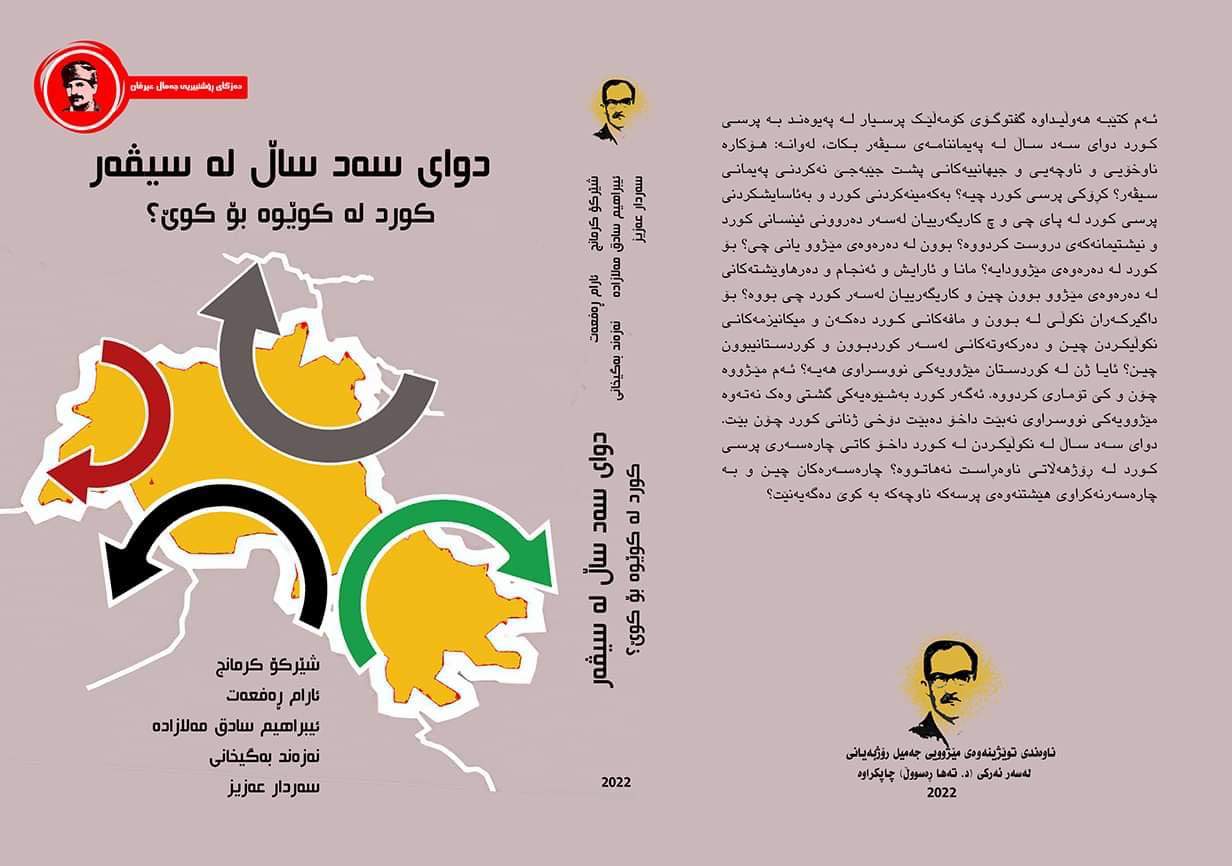After two years of work, Dr.Ibrahim Sadiq Malazada, a lecturer in the Department of Sociology at the Faculty of Arts- Soran University, finally published a book with four other academics. The book title is "A Hundred Years After Sevres, The Kurds From Where to Where?”. Within his specialty, Malazada wrote a chapter of the book entitled "One Hundred Years of Denial as a Form of Genocide from the State/Nation Relationship and Characteristics of Colonialism!".
After the introduction, the book deals with the situation of Kurdistan after the First World War, under four main concepts: isolation, marginalization, common religion, and otherness. " In the second part of the book, work has been done to introduce the Kurdish situation in theory, and what is the appropriate characterization of the Kurdish situation under the title "Regional colonialism and genocide as a model." In this context, he mentions several treaties concluded between the occupiers of Kurdistan, including the "Treaty of the Brussels Line of 1926, the Treaty of Saadabad, the Treaty of Baghdad, the Algiers Agreement, the Adana Agreement, the Turkish-Iraqi Border Crossing Agreement and the Charter of the Tripartite Union of Arab States."
Afterwards, the book deals with the characteristics of colonialism as a model of the genocide process and its relationship, hence the relationship between the state and genocide, and a section of the characteristics of colonialism, and settlements that are clearly visible in western Kurdistan. Thereafter, all the crimes committed in the four parts of Kurdistan were touched upon in practice. For example, western Kurdistan, like several isolated islands, the Arab Belt, and other crimes. as well as in the south and the process of Arabization in Iraq, classification, and genocide. Consequently, the North and Turkey's colonial policy, the beginning and continuation, thus the interpretation of Turkish centralization and the policy of the Kemalists towards the Kurds of 1918-1922. Subsequently, the situation in the north was generally discussed, such as demolition and reconstruction. In conclusion, the situation in eastern Kurdistan has been analyzed in the context of the crimes committed against the eastern Kurds over the course of a century.
The most important point of all the themes of the draft book is the recounting of Kurdish history by a number of academics. The narrative aims to open wounds and take advantage of errors. In general, the book attempts to discuss a number of questions on the Kurdish issue a hundred years after the Treaty of Sevres, among them: What are the domestic, regional, and international factors behind the non-implementation of the Treaty of Sevres? What is the essence of the Kurdish question, what is the reason why the Kurds were made a minority and securitization of the Kurdish cause, and its impact on the psyche and homeland of the Kurdish individual? What does it mean to be out of history? And is the Kurdish out of history? What is the significance, consequence and of being out of history and its impact on the Kurds? And why do the occupiers deny the existence of the Kurds and their rights, what are the mechanisms of denial and their implications for Kurdish and Kurdish identity? Do women in Kurdistan have a written history? How and who recorded this history? If the Kurds don't have a written history, what should the status of Kurdish women be? Isn't it time to resolve the Kurdish issue in the Middle East after a hundred years of denial? What are the solutions and where will the region head as this issue remains unresolved?
